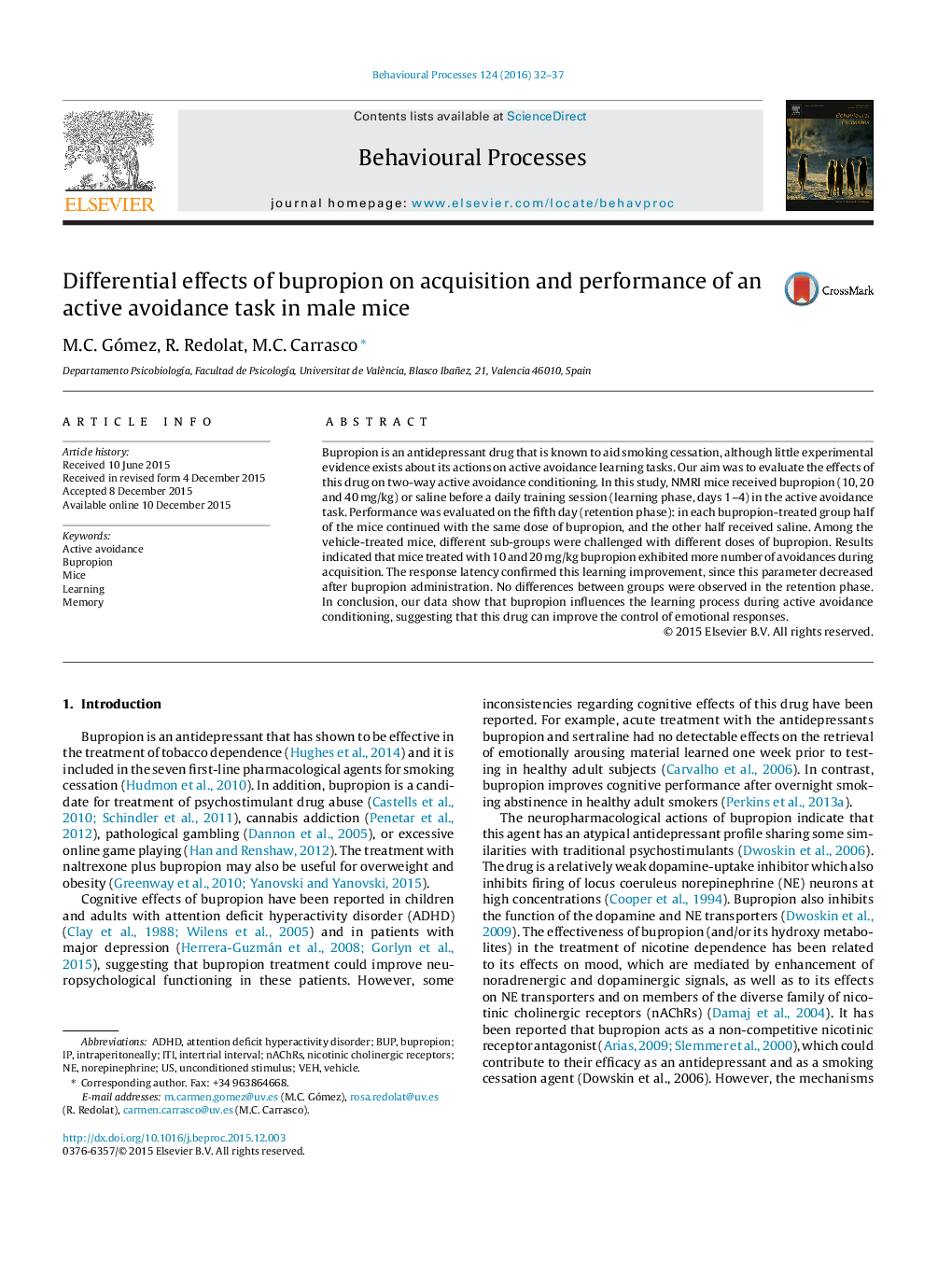| کد مقاله | کد نشریه | سال انتشار | مقاله انگلیسی | نسخه تمام متن |
|---|---|---|---|---|
| 2426451 | 1553156 | 2016 | 6 صفحه PDF | دانلود رایگان |
• Bupropion increases number of avoidances during the acquisition of the task.
• Mice treated with bupropion display shorter response latencies thancontrol group.
• No differences between groups were obtained in the retention phase.
• Bupropion improves the learning process during active avoidance conditioning.
• Bupropion effects on memory may be influenced by prior experiencein the task.
Bupropion is an antidepressant drug that is known to aid smoking cessation, although little experimental evidence exists about its actions on active avoidance learning tasks. Our aim was to evaluate the effects of this drug on two-way active avoidance conditioning. In this study, NMRI mice received bupropion (10, 20 and 40 mg/kg) or saline before a daily training session (learning phase, days 1–4) in the active avoidance task. Performance was evaluated on the fifth day (retention phase): in each bupropion-treated group half of the mice continued with the same dose of bupropion, and the other half received saline. Among the vehicle-treated mice, different sub-groups were challenged with different doses of bupropion. Results indicated that mice treated with 10 and 20 mg/kg bupropion exhibited more number of avoidances during acquisition. The response latency confirmed this learning improvement, since this parameter decreased after bupropion administration. No differences between groups were observed in the retention phase. In conclusion, our data show that bupropion influences the learning process during active avoidance conditioning, suggesting that this drug can improve the control of emotional responses.
Journal: Behavioural Processes - Volume 124, March 2016, Pages 32–37
